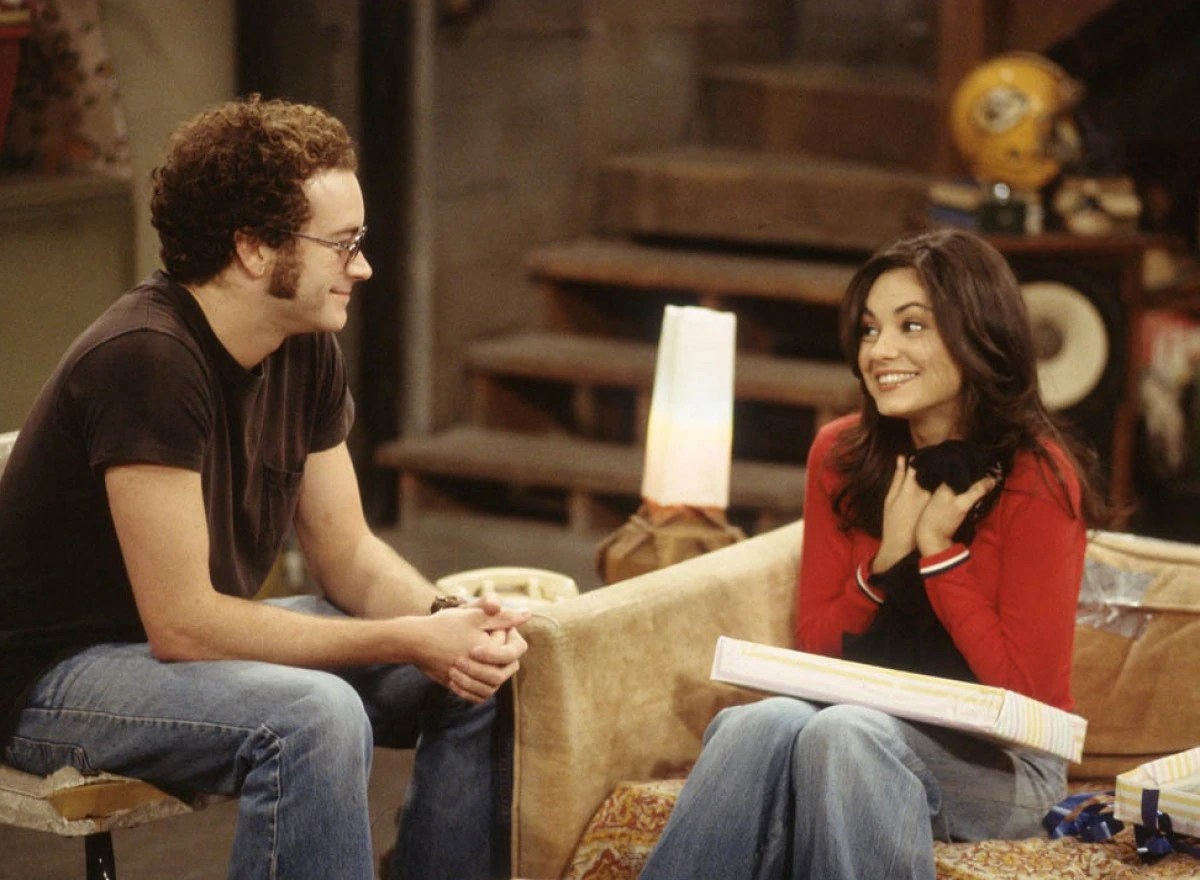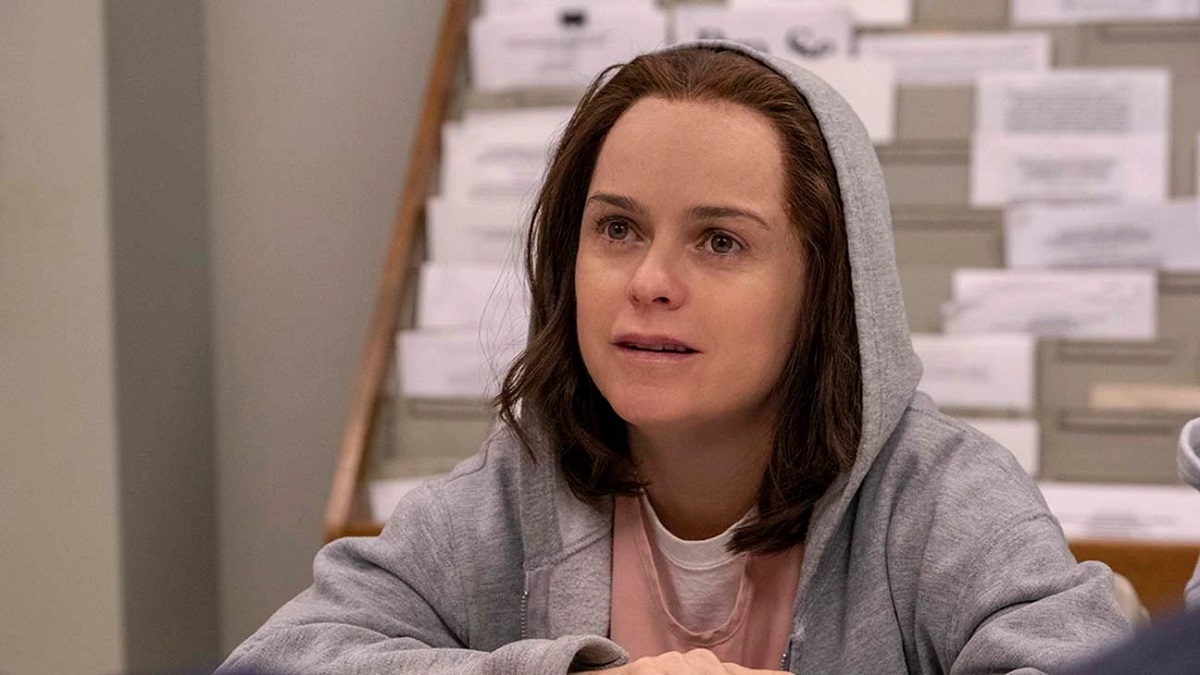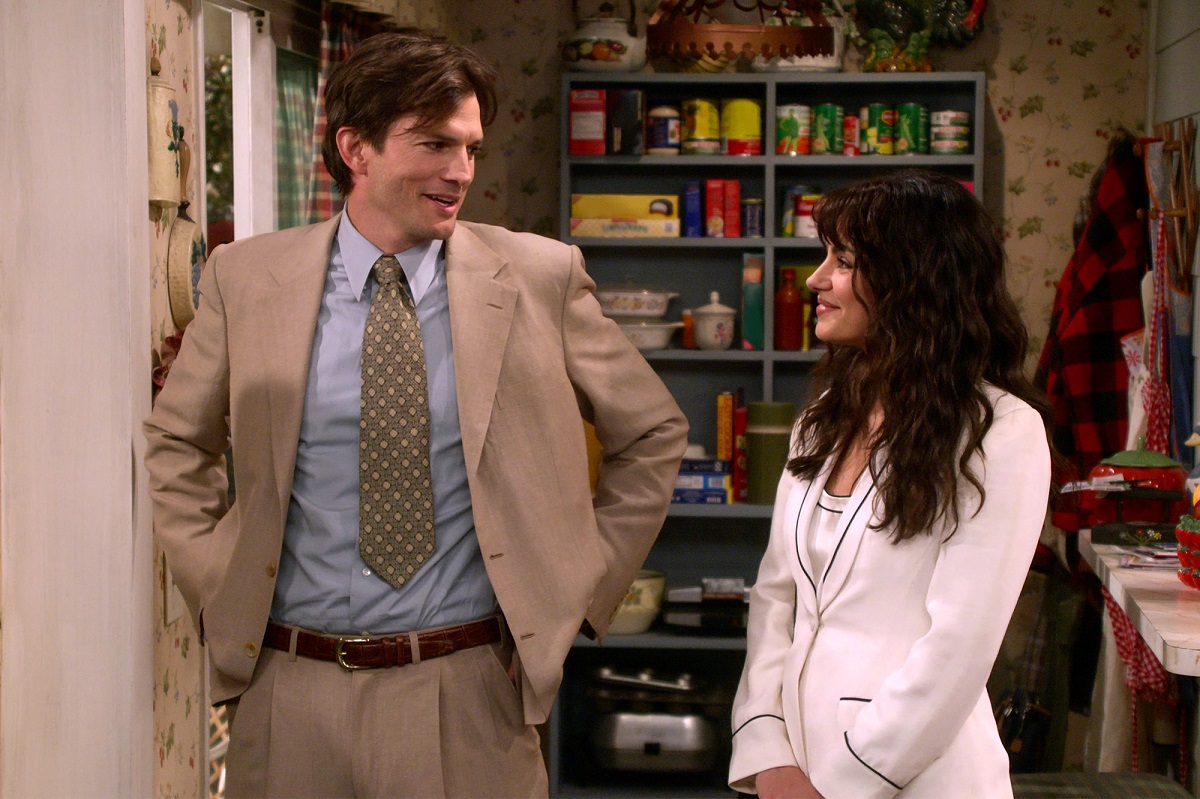Taryn Manning’s Defense of Danny Masterson Points to Deeper Cultural Wounds

The internet’s moved past talking about That ’70s Show‘s Danny Masterson being a convicted rapist, and has taken to dissecting the discourse between those who’ve known or worked with him. One could argue this is frivolous—that what matters is justice for the victims, and Masterson getting the sentence he deserves—but the discourse around Masterson is important evidence of additional harm that needs repair.
To catch you up…
After Masterson’s sentencing earlier this month, we learned that his friends and former co-stars, Ashton Kutcher and Mila Kunis, had written letters on his behalf, extolling his character in the hopes of convincing the judge to give him a more lenient sentence. They weren’t alone. Co-stars Debra Jo Rupp and Kurtwood Smith (not you, Kitty and Red!), along with friends and colleagues like Billy Baldwin and Giovanni Ribisi, wrote similar letters.
Journalist Tony Ortega specializes in reporting on the abuses within the Church of Scientology, of which Masterson is a member. Ortega obtained copies of the letters of support for Masterson and shared their contents publicly. Once the general public caught a glimpse of them, Kutcher and Kunis immediately moved to apologize—not for having written the letters, but for … the letters being made public? They do know that journalists can obtain court documents, and that this is a newsworthy celebrity case, right? They’ve been in the public eye since they were kids. They should know how this works by now.
Enter Taryn Manning

Earlier this week, actor Taryn Manning (Orange Is the New Black, Sons of Anarchy) took to Instagram to criticize Kutcher and Kunis for “backpedaling” on their support of Masterson and “blaming [Masterson’s] mom” when talking about how they were approached by his family to write the letters.
Manning considers Masterson a friend, and while she acknowledges that he made “a mistake” in raping multiple women, “There’s no human on this planet that doesn’t deserve to have the best life and to be happy and free because you are made in the image of the good Lord, made perfectly just the way you are.”
It’s important to note that Manning’s point isn’t that she thinks he’s being wrongly imprisoned. In her video, she’s specifically talking about the public discussion surrounding his conviction. “[E]veryone just keep going,” she says, sarcastically. “Keep crucifying him, as if he’s not already suffering.” Having been sentenced to 30 years in prison, Manning says that Masterson “gets it.” He “got it,” and she believes that he doesn’t deserve an additional pile-on.
Manning followed up this first video with a second post. The video features a new song of hers, but the caption is telling:
“This is dedicated to @aplusk for calling me out and punking me on the carpet calling out something I wish I could have shared with my family and friends first. My new song “How I’m gonna Drive a Car” I hope you like ❤️ Terrence Howard it’s just a matter of time for the truth about you. ? Raymond from Cleveland Abduction too We’re so abusive they had to hire me a bodyguard. They didn’t have to put bruises on me in the makeup trailer anymore cause I was COVERED from your abuse, You can legit burn in HELL since you loved talking about it daily anyway. Also traumatizing. Most evil actor I’ve ever worked it hands down.”
The carpet incident Manning refers to is from her 2003 appearance on the Kutcher-hosted MTV reality show, Punk’d. Per a Newsweek recap, the appearance involved a “foreign correspondent” and her “translator” doing prank interviews with various celebrities, eventually getting to a then 24-year-old Manning:
“I like you,” Liza says to a flattered Manning in the footage, but as the actress turns to walk away, the fake reporter yells “Do you like girls?”
“Huh?” Manning replies, causing Liza to repeat the question. “What do you mean? Of course,” Manning responds.
“You know like, for sex?” Liza asks, to which Manning clarifies “Do I like to have sex with girls?”
“Yes, yes,” Liza says, with an obviously annoyed Manning answering “No.”
This was before Manning had come out to family or friends as bisexual, so it was understandably upsetting. Newsweek also mentions another Instagram post of hers that seems to have been taken down, in which she said the following of the appearance:
“No joke. Something I had not been okay with being I guess a bisexual lady,” she wrote alongside a video of herself criticizing Kutcher and Kunis.
“I was a child. Seriously dude. Stick up for people for once.”
A.V. Club reports on another since-deleted video in which Manning calls the handling of a rape storyline given to her character on Orange Is the New Black “abusive.” She writes:
“On Orange Is the New Black, which most people know me for, thinking that that’s my only project, it was written that I was raped. I was raped on the show, remember? No one ever told me that, when I had to hit the press, the amount of the wall I’d be up against. ‘So what was it like to be raped on the show?’ The most divisive, pervasive topic on the planet, and I had to stand up and be the spokesperson for rape. That’s abusive to me.”
She goes on to explain that she felt unsupported by the show in dealing with the press questions surrounding the storyline, and that the show’s producers “just dropped” the storyline on her.
We should focus on what people say, not how they say it

In the coverage of Manning’s social media posts, various outlets refer to how “confusing” or “rambling” they are, some going so far as to call them “unhinged.” While it seems clear that Manning is going through a lot, and she does have a tendency to ramble in her videos (in one, she acknowledges that she’s been referred to as a conspiracy theorist, which … she is), if you listen to what she’s saying rather than focusing on her delivery, things become much clearer.
In defending Masterson—a friend, who was nonetheless found guilty of rape in a court of law—Manning seems to be re-processing abuse that she herself has experienced in the industry at the hands of a number of people. Even a man she considers a friend can be convicted for heinous crimes against women. Wrestling with that seems to have opened the floodgates, allowing her to publicly name actors like Terrence Howard, with whom she worked on Hustle & Flow (2005), and Raymond Cruz, with whom she worked on Cleveland Abduction (2015), and implicate them in alleged abuses (albeit cryptically).
In that context, it makes sense that Manning would come for Kutcher in this way, too. While he didn’t cause anywhere near the same kind of harm, in his job as the host of Punk’d (and in his general role as a public figure) he not only hurt her, but repeatedly contributed to a culture that is toxic to women.
Manning’s posts seem to be less about defending Masterson, and more about expressing frustration over the hypocrisy of Kutcher speaking favorably about Masterson’s character while apologizing for retraumatizing victims; though he’s historically contributed to rape culture, Kutcher gets to remain the “cool guy.” In her newsletter, Men Yell at Me, journalist Lyz Lenz provides great analysis of this aspect of Kutcher’s career in her essay “A Good Man is Hard to Find.”
In using this moment to name actors and productions having nothing to do with Masterson, it seems Manning is also frustrated by the hypocrisy of everyone in Hollywood who’s committed, contributed to, or downplayed abuses over the years.
Few of us know Manning personally, nor do we know anything about her physical or mental health that she doesn’t choose to share. What we do know is that the past several years have cracked Hollywood open, exposing abuses that weren’t even considered abuses not that long ago, but simply “the way it is.” At best, they were “necessary evils” people needed to endure and stay quiet about to keep their Hollywood careers intact.
Manning is one of a generation including Kutcher and Kunis who’ve been steeped in rape culture only to reach adulthood in a world where behavior that was “standard” in their youth has now been openly exposed as unacceptable abuse. It requires an entirely new processing and recontextualization of the abuses we’ve experienced, and the abuses in which we’ve been complicit.
It’s required of every generation as we continue to evolve.
That process isn’t always perfect or coherent. It might take the form of rambling videos on social media. It might take the form of clumsy, PR-coached apologies. Different people travel at different speeds, but the destination is inevitable. We’re not going back to a world in which protecting abusers is considered par for the course.
Now that the survivors of Masterson’s crimes have seen justice served, here’s hoping that those of us whose enthusiasm for That ’70s Show has subsequently dimmed can come to terms with the ways in which we’ve been complicit in an abusive culture, and heal from the abuses we endured—but that we might not have been able to recognize as abuses at the time.
(featured image: 20th Century Television)
Have a tip we should know? [email protected]